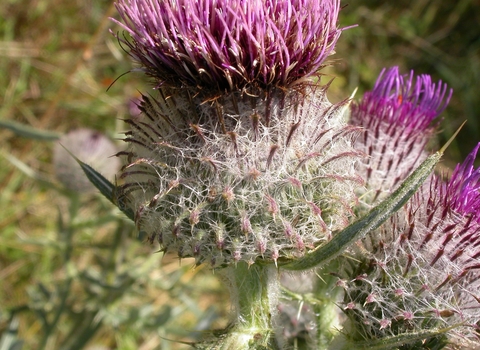
©Bruce Shortland
Woolly thistle
Look for the round, cottony, purple flower heads of the Woolly thistle on chalk and limestone grasslands in summer. It is mainly found in Southern England.
Scientific name
Cirsium eriophorumWhen to see
July to SeptemberSpecies information
Category
Statistics
Height: up to 1.5mCommon.
